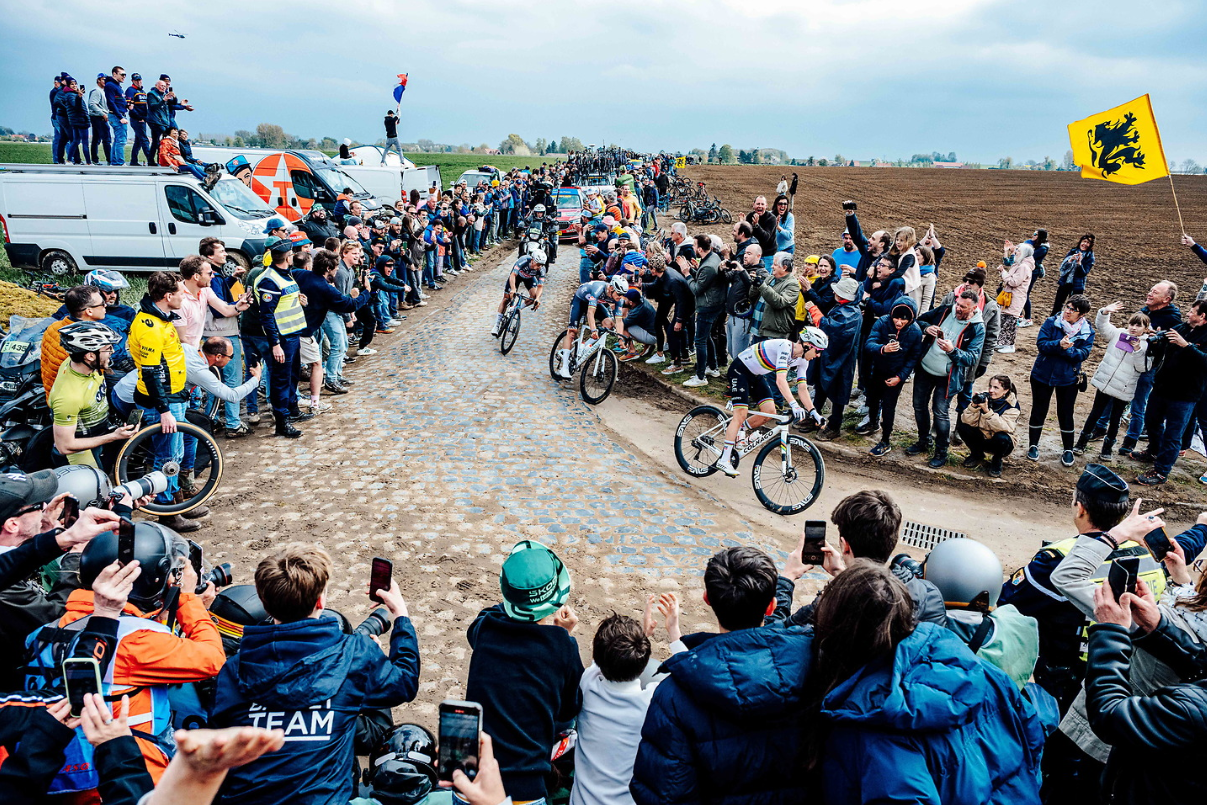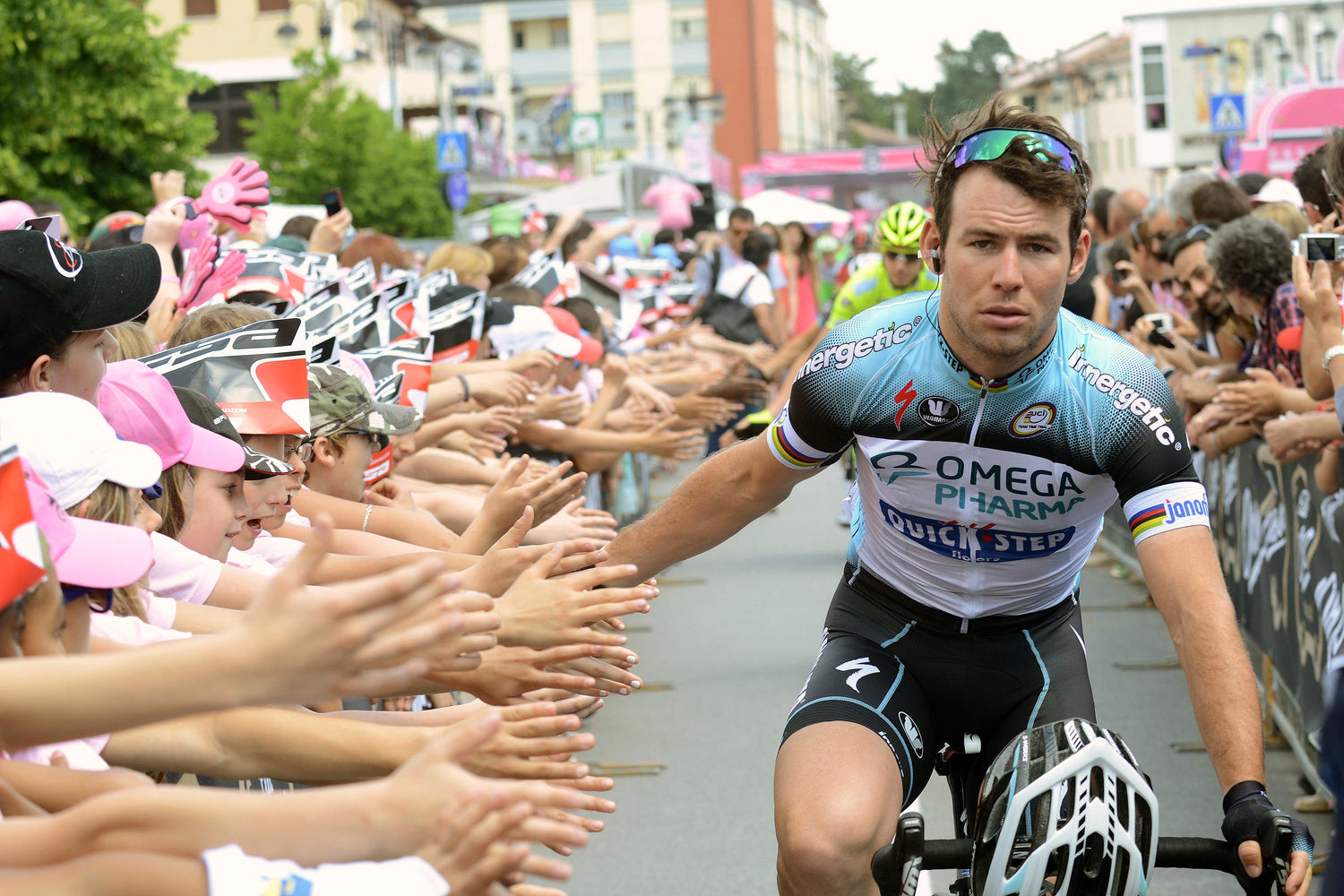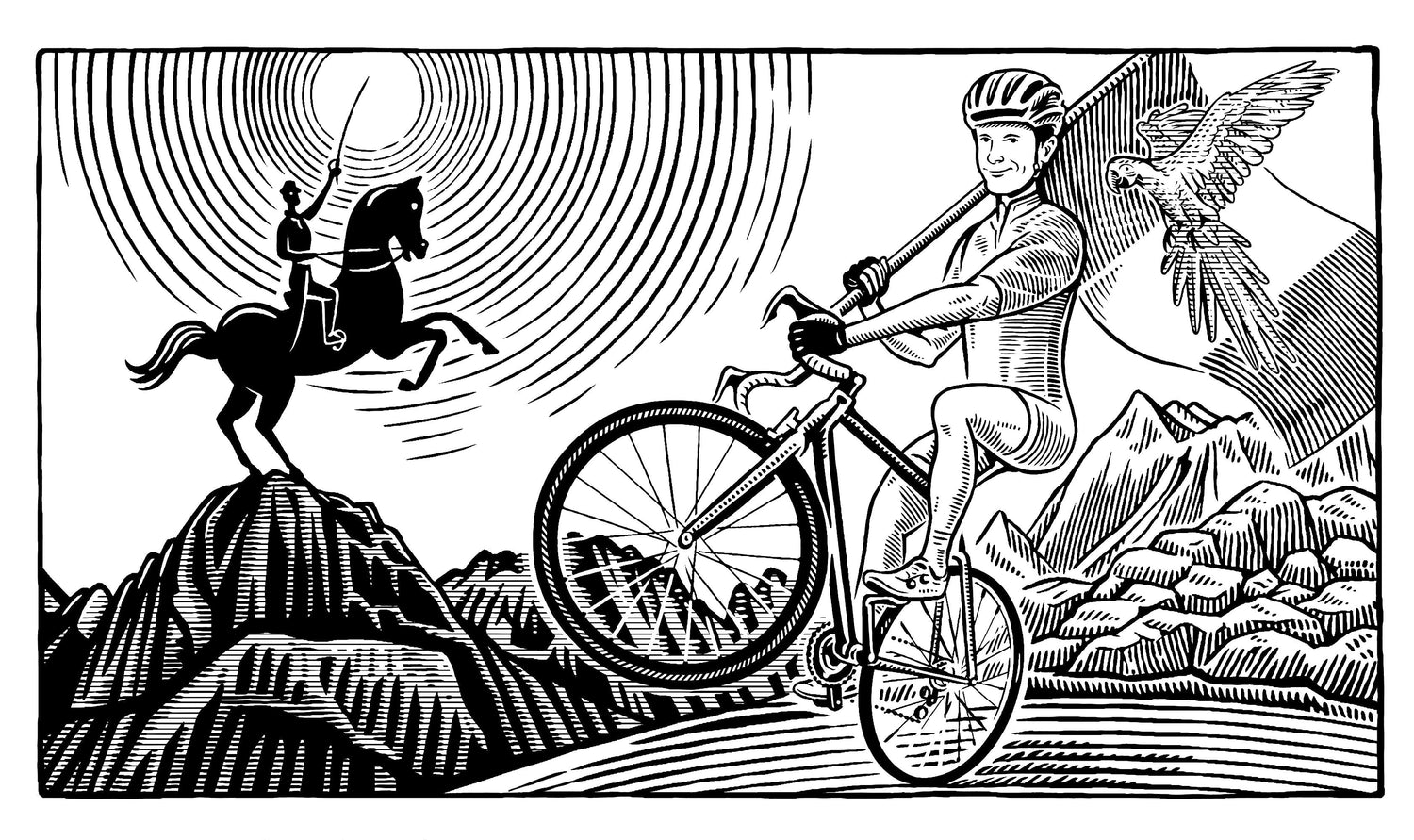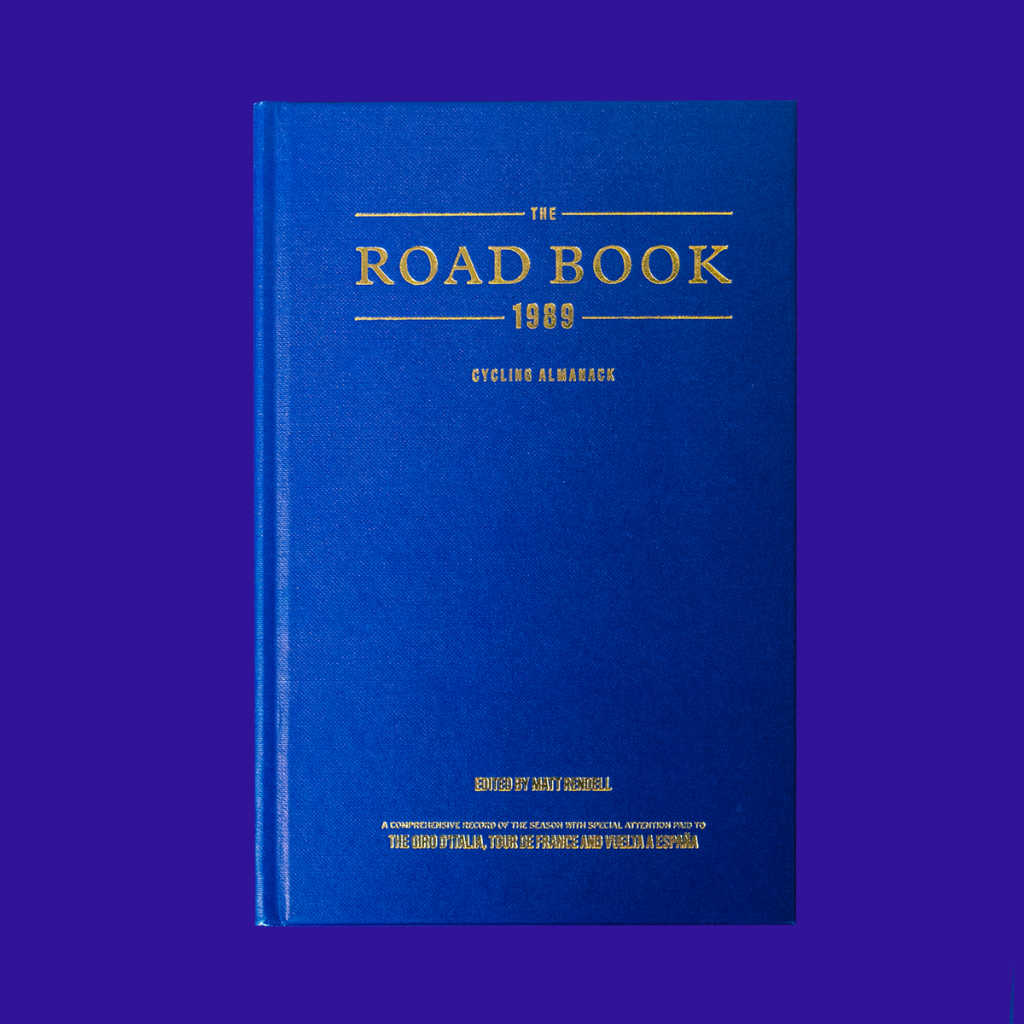Here is what’s happened since we last spoke.
Last year’s Paris-Roubaix was entertaining in the way that much of 2024’s racing was: a spectacular display of individual brilliance holding us enraptured as Mathieu van der Poel (Alpecin-Deceuninck) rode to a solo victory from 50km out, patting his noble steed affectionately with the absolute certainty of his victory. Tadej Pogačar (UAE Team Emirates - XRG) was a similar proponent of this destructive style of riding, even taking off on a flyer 100km from the finish in a particularly virtuoso display at the World Championships, dethroning van der Poel in the process.
This year, the story of the Monuments has been different. Tadej Pogačar set out to challenge this generation’s greatest one-day rider in Mathieu van der Poel on his own turf, and the results have been anything but disappointing. Milan-Sanremo was battled over with nail-biting brilliance by the two, inseparable right up until the final few hundred metres, the Classicissima wetting the appetite of the cycling world for more clashes between the two heavyweights. As we built up to the Ronde van Vlaanderen and Paris-Roubaix, the two Monuments which arguably best suited Mathieu van der Poel, the excitement reached fever pitch, all other racing in the meantime feeling like pre-film trailers: mildly exciting, but mostly a sideshow and a dangerous opportunity to eat all your popcorn before the actual film begins.

The Ronde van Vlaanderen
The 109th edition of the Ronde van Vlaanderen had a certain inevitability to it. The tension slowly ratcheting up as we waited for what everyone knew must come: a Tadej Pogačar attack on the steepest berg which took him and a small group (probably including van der Poel) away.
Several teams did what they could to disrupt this almost inevitable structure. INEOS Grenadiers launched Filippo Ganna across to the breakaway alongside teammate Connor Swift with 90km to go, in the hope that he could latch onto Pogačar, à la Milan-Sanremo, once he inevitably caught this leading group. It didn’t quite work, despite the breakaway’s undoubted quality, but the idea was sound. It was only on the descent from the horrifically steep Koppenberg that the group of favourites featuring Pogačar, Mathieu van der Poel (sporting bumps and bruises from an early crash), Wout van Aert (Visma-Lease a bike), and Lidl-Trek's Mads Pedersen and Jasper Stuyven caught the breakaway.
Van Aert was under intense scrutiny after a shambolic performance earlier in the week at Dwars door Vlaanderen, and though a 4th place wasn’t quite what he wanted, the manner in which he achieved it would’ve been heartening for Belgian fans. The former Milan-Sanremo winner simply couldn’t match the monstrous accelerations of Pogačar and long-time cyclocross rival Mathieu van der Poel on the ferociously steep cobbled bergs. However, his below-threshold effort was astounding, the weeks spent at a high-altitude training camp clearly paying off as van Aert relentlessly motored his way to fourth place.
In his bobbing, bike-wrenching style Pogačar surged into the attack again and again across the race’s steepest climbs. It was only on the Oude Kwaremont’s final ascent that he managed to show a clean pair of heels to the dogged figure of Mathieu van der Poel. All it took for the World Champion to finally rid himself of his ever-present shadow was two-trips up the Kwaremont, the Eikenberg, the Koppenberg and the rest of his team tearing the race up at a horrific pace.
For a moment, a sparse handful of pedal strokes, van der Poel hung in there, ripping his bike from side to side, out of the saddle with his normally composed countenance contorted by the visceral pain of the effort. Then with a sudden swell of noise as the crowd roared him on, Pogačar gained a gap. First a wheel’s breadth, then a bike length and finally daylight, as a beaten van der Poel settled down to ride with Mads Pedersen and Wout van Aert. The World Champion only had a 30-second lead by the time he crested the Patterberg, but once Pogačar gets the bit between his teeth, there are increasingly few who can catch him.
As Pogačar crossed the line, back straight and arms spread to bask in the glory of his second Ronde van Vlaanderen title, Mads Pedersen (Lidl-Trek) continued his impressive spring, beating van der Poel to second.

Paris-Roubaix
A week later, and one of the most discussed races of the year more than lived up to expectation, serving up five and half hours of pure theatre across 55 kilometres of cobblestones.
In answer to the question ‘Could Tadej Pogačar win Paris-Roubaix?': no, not this year. But bloody hell he didn’t half try, and if that little smile we saw break across his face as the battered and bloodstained World Champion rolled into the sporting amphitheatre of the Roubaix Velodrome, roared on by the adoring faithful, was anything to go by, Pogi might have been beaten, but by God did he enjoy it. I’d be shocked if he doesn’t return next year with a vengeance.

The Queen of the Classics rarely disappoints, a race of Shakespearean brilliance, torn to ribbons from the first cobbled sector as riders puncture or crash, all hope of coherent tactics shattered as the unstoppable force of the peloton meets the immovable object of Northern France’s most brutal cobbles. It is this sheer, unbridled carnage which makes Paris-Roubaix probably the most exciting race on the calendar, with it’s famous five-star sectors firmly enshrined in cycling folklore. You can easily imagine the cycling fanatics, quietly huddled in candlelit nooks of Belgian bars shuddering as they softly whisper the names of these cobbled sectors. Their hushed tones invested with the same fearful reverence as old sailors recounting encounters with the kraken, watchful least they incur the wrath of these ancient cobblestone leviathans of the deep.
With 71km of racing left, the five leaders on the road were Pogačar, Mathieu van der Poel and teammate Jasper Philipsen who’d done very well to get back after his early crash, Mads Pedersen and Stefan Bissegger (Decathalon-AG2R La Mondiale). A promising performance was brought to an end by a mechanical for Bissegger who nevertheless managed a 7th place finish. Pedersen’s rambunctious charge to victory was thwarted by a flat front tire as he attacked on a cobbled sector. The Dane still managed to finish on the podium in third, and will be, if not happy, then at least satisfied with his effort. It wasn’t long later that the final hanger on was distanced, Jasper Philipsen unable to stay with the relentless pace of van der Poel and Pogačar.
It was inevitable, like the torturously slow fall of a gigantic, creaking, rotten tree trunk blown over in a thunderous gale: Pogačar and van der Poel, alone on the road, two champion prize fighters locked together, each terrifically strong and almost, almost inseparable.

In the end, Tadej Pogačar made the decisive error, rocketing along at almost 50kph on a cobbled sector, the two riders approached a sharp right-hander. In a moment of unbelievable drama, as the race seemed to enter slow-motion, Pogačar missed the turn. Too late the World Champion realised his mistake, and cursing his own innocence on his maiden appearance, he braked sharply, ripping his way off the cobbles onto the soft turf of the grassy verge, almost holding it up as he tried to turn tightly up against the barriers before finally losing control, tumbling to the earth in an ungainly heap.
Whilst Pogačar picked himself up, and tried frantically to fix his now battered bike as his team car fought through the tight press of vehicles on the road behind to effect a bike-change; van der Poel motored on. His cyclocross skills came to the fore, riding roughshod over the grass before continuing to push on at an unrelenting pace.
That is cycling however, and these delicately balanced moments of immense skill or incredible luck, are an inseparable part of its alluring beauty, and the sport’s unmatched capacity to write gripping stories for us to enjoy. Despite his vaunted power, a now blood-stained Pogačar was very quickly 20 seconds behind the defending champion. It was a gap which eventually ballooned out to a minute, and despite late bike-changes for both riders, Van der Poel’s experience at the race ensured it was an insurmountable lead. If the Slovenian takes anything away, it’ll be that Paris-Roubaix is defined by the finest of margins, and lethargic changes of equipment or mistakes on the road will be punished ruthlessly by the race itself.

What theatre. What drama. What Joy.
Mathieu van der Poel cemented his place in history, becoming the first man to win successive editions of Paris-Roubaix by more than a minute. However, with the thundering pressure of Pogačar in pursuit, there were no knowing smiles, or cheeky, confident pats of the bike as he glided across the cobblestones. Unlike last year it wasn’t pure unbridled joy which broke across Mathieu van der Poel’s face as he rode that familiar one and a half laps of the velodrome, but blissful relief. He looked battered, as though he had finally been pushed to his absolute limit by the one rider who seems capable of matching him for power and panache.

Van der Poel’s momentous ride to victory, as he became only the third male rider in history to win the race on three occasions, was marred by the incredibly unsavoury sight of a fan flinging a full bottle into his face. It is not the first time in recent weeks that van der Poel has been the target of such horrific, unnecessary and frankly idiotic hooliganism. This is cycling. It is not the football. Leave your prejudiced partisanism at the Den and simply enjoy watching undoubtedly two of the greatest athletes in the world, if not ever, battling it out.
Cycling is a sport of endurance, and especially in the case of Paris-Roubaix, a personal battle with the burning lactic acid in your legs, the bone jarring cobbles, thick, slippery mud and lonely kilometres riding into the wind. We were treated to one of the most thrilling days of racing ever, but not enough for one fan apparently.

Aside from the two big guns, there were many riders deserving of praise after a brutal ride. Norwegian champion Marcus Hoelgaard (Uno-X) was in the day’s break and fought bitterly to stay in the chasing group alongside the likes of Fred Wright (Bahrain-Victorious) as they both managed career best top 10 finishes. Wout van Aert and Florian Vermeersch (UAE-Team Emirates XRG) finished 4th and 5th respectively, only just beaten by Mads Pedersen to the podium.
Van Aert’s young British teammate, Matthew Brennan, continued a phenomenal World Tour debut season, riding with the big names like a natural for well over 200 kilometres. At times he looked like the better pick to lead the team, though he faded towards the end of what was the longest day of racing in his young career. With a performance like that however, it's clear that Brennan has what it takes to one day win a Monument.

Amstel Gold
On Sunday, Mattias Skjelmose achieved the unthinkable, hauling back the reigning world champion after he had launched a long-distance solo attack.
So often over the last few years, the pattern of a hilly race which features Tadej Pogačar has been the same: UAE Team Emirates drive the pace brutally hard in the immediate build-up to the most challenging climb of the day. As soon as they hit the climb, Pogačar launches himself off the front of the peloton, and woe betide any rider who tries to go with him. On the very, very rare occasion, his attack has been matched, he has been caught and then beaten, and when this does happen, it is usually his phenomenal rival for the title of greatest GC rider of the generation, Jonas Vingegaard who manages to thwart him.
At Amstel Gold Race this year, on terrain on which he won with a devastating long-ranged attack in 2023, this same story seemed to be playing out. With just over 40km to go, former World Champion Julian Alaphilippe attacked, matched, admittedly with gritted teeth, by Pogačar. The incumbent World Champion swiftly dispatched his erstwhile ally on the next climb, building a normally insurmountable lead of 30 seconds by the time Remco Evenepoel (Soudal-QuickStep) and Mattias Skjelmose (Lidl-Trek) launched their own counterattack from the peloton.
On any other day, this would have been the bid for second and third, positions to which even the mighty talents of Mathieu van der Poel, Mads Pedersen, and Tom Pidcock have been reduced to by Pogačar’s solo attacks this season. However, through the determination and sheer power of a revitalised and recovered Remco Evenepoel, the duo chased the World Champion down. With 8km left to race, they caught him, and with a little shake of his head, disappointed at what he must perceive as his own failing, Pogačar slipped into the group and settled down to try and beat the Dane and the Olympic champion in a sprint.
He almost did, but in a brilliantly tense finale, settled in the end by a photo finish, and with one last desperate throw of the bike, Matthias Skjelmose beat both the Rainbow Jersey, and the gold wrapped figure of Evenepoel in undoubtedly a career best victory.

A phenomenal, unbelievable day of racing, which adds to the race’s continuing legacy of unpredictable results and remarkable comebacks (see our 2019 edition to read about Mathieu van der Poel’s exploits). What's more, it proves that it doesn’t just take cobblestones, or slightly unfavourable terrain to beat Pogačar. The irrepressible Slovenian can, if rarely, be beaten on his own terrain. What a ride from Skjelmose, who thoroughly deserved a canny, tactically brilliant win in probably the one race so far this year where Lidl-Trek were not amongst the favourites. Similarly, Remco Evenepoel can take immense heart from a display which should inform his thinking ahead of the remaining Ardennes Classics and the Tour de France later this year.
You'll get even more in-depth coverage of every single World Tour race in pages of The Road Book. Pick up a copy of 2024's edition to remind yourself of last year's brilliant season.
Alternatively, you can join The Road Book Society to be the first to hear once The Road Book 2025 goes up for pre-order.
Written by Henrik Bassett
Images Courtesy of Russ Ellis







